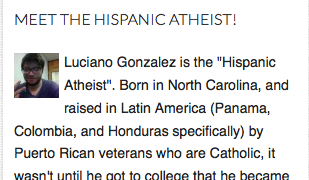If you are vain enough to think I am directing my posts about propaganda at you you are probably right. I am certainly revisiting my past and still preaching to myself.
Vridar was the fictional name Vardis Fisher use of the main character in his “autobiographical novel” The Orphans of Gethsemane. Vridar had been raised in a strict Mormon household and had to learn anew the fundamental lessons of life and love only after leaving that faith behind. I found myself identifying closely with Vridar in the novel.
Religion was only one part of what Vridar had to unlearn and come to understand. The same with me. My past experiences left me wondering how I could have been so completely wrong for so long about so many things in life.
As a significant part of my post graduate degree course in educational studies I found myself compelled (willingly) to investigate the difference between education and propaganda. The bizarre irony was that I remained true to my religious faith the entire time of my studies! How is such a double-bind possible? It makes no sense.
But it did happen and as I was breaking away in subsequent years from my faith I often thought back trying to identify how it happened.
I have also told before my disillusionment on leaving my faith cocoon only to find the same processes at work in others and the wider society that had, in concentrated form, led me into my “extremist” religion. The world was not immune. The same processes were all around me, everywhere. The difference being, fortunately, that in the wider world there is also more potential to exposure to opposing views, debate, and the processes that come together to radicalize some individuals are often (not always) in more diluted forms elsewhere.
Propaganda is a topic that is close to my own heart; it is a topic that opens one’s eyes to not only how the wider world works but also to how each of us works. I am no different from anyone else in that respect.
So let’s recap, and I am embracing here previous posts where I have set out a discussion of what Vridar is about:
Vridar is about attempting to understand religion, not simply bash and attack it.
It is about attempting to understand the origins of Christianity and other related faiths, especially the Bible, and is not on any crusade to undermine or attack them, either. Plenty of other sites do that quite effectively.
It is about trying to understand human nature, the way the world works, how our views are shaped, whether those views relate to religion, politics, human values.
It is about understanding anything else from time to time of special interest from history and science or wherever.
I am well aware many readers have left Vridar because of the non-religious topics, especially those relating to Islam and terrorism. That is sad, but inevitable. (Many mainstream religionists, both lay and scholar, have walked away, too.) I know that many people are not interested in exploring why the wider world “thinks” the way it does or how they have come to have the views they do. They are supremely confident that they understand all of these things very well. Just like I was confident that a post-graduate course exploring the nature of propaganda would not shake my faith, because I knew the sure grounds of my faith.
I have tried to make the most of the experiences that led to Vridar in the first place so that those earlier years could be somehow turned to something useful for anyone interested. I don’t claim to have definite answers, but I have learned some lessons and am very interested in learning and understanding, and sharing what I learn and come to understand here.
It is a shame that some readers are more interested in trolling, attacking, etc rather than discussing those things, but that’s how the world works.
Like this:
Like Loading...






